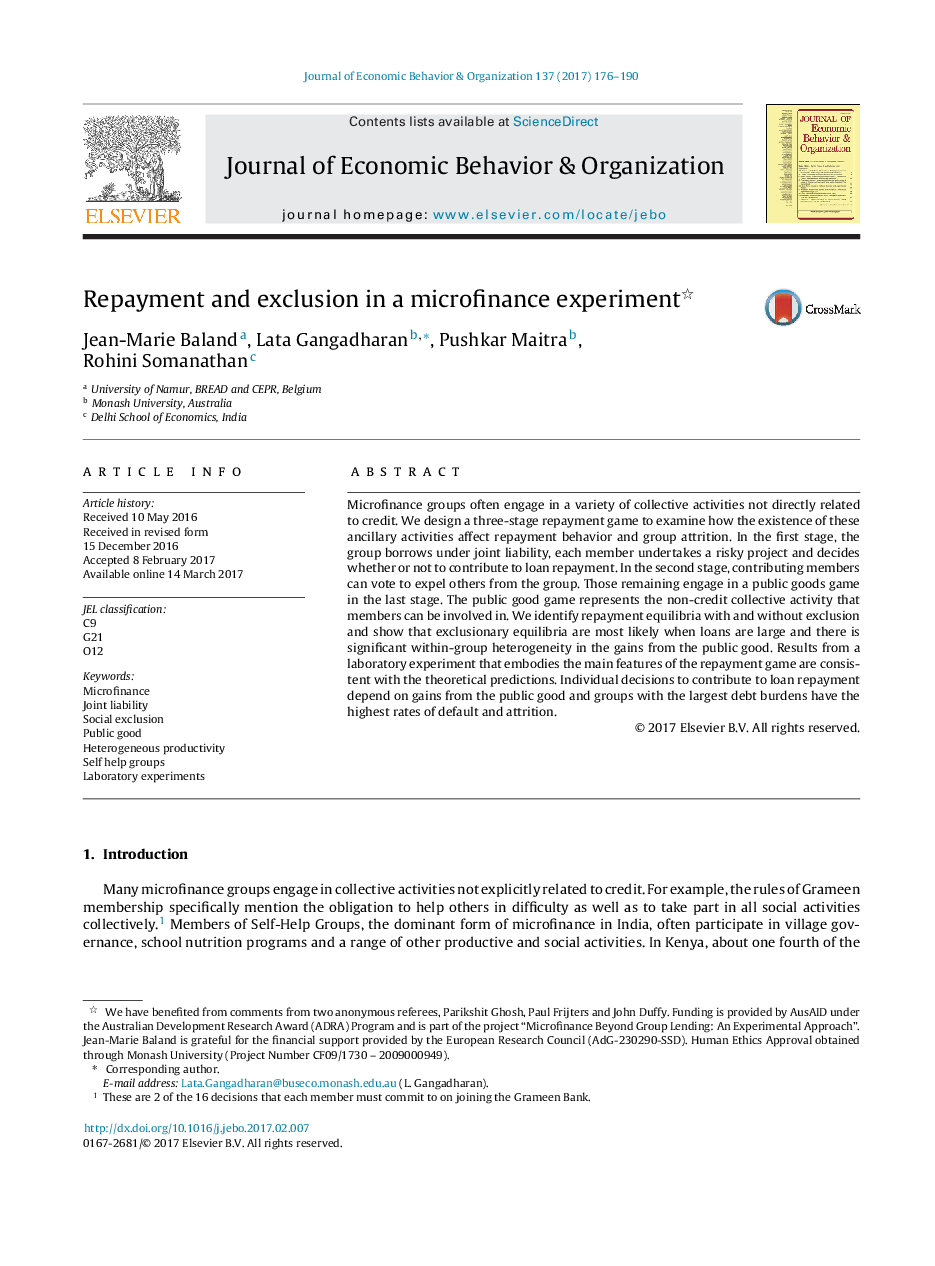| Article ID | Journal | Published Year | Pages | File Type |
|---|---|---|---|---|
| 5034562 | Journal of Economic Behavior & Organization | 2017 | 15 Pages |
Abstract
Microfinance groups often engage in a variety of collective activities not directly related to credit. We design a three-stage repayment game to examine how the existence of these ancillary activities affect repayment behavior and group attrition. In the first stage, the group borrows under joint liability, each member undertakes a risky project and decides whether or not to contribute to loan repayment. In the second stage, contributing members can vote to expel others from the group. Those remaining engage in a public goods game in the last stage. The public good game represents the non-credit collective activity that members can be involved in. We identify repayment equilibria with and without exclusion and show that exclusionary equilibria are most likely when loans are large and there is significant within-group heterogeneity in the gains from the public good. Results from a laboratory experiment that embodies the main features of the repayment game are consistent with the theoretical predictions. Individual decisions to contribute to loan repayment depend on gains from the public good and groups with the largest debt burdens have the highest rates of default and attrition.
Keywords
Related Topics
Social Sciences and Humanities
Economics, Econometrics and Finance
Economics and Econometrics
Authors
Jean-Marie Baland, Lata Gangadharan, Pushkar Maitra, Rohini Somanathan,
